GP mythbuster 107: Pre-travel health services
Guidance updated April 2023
We have fully revised and reissued this information to incorporate up-to-date resources and advice.
Travel health services are available from a range of NHS and independent healthcare services.
These include:
- NHS GP practices
- private travel clinics
- some specialist clinics providing post-tropical screening services
- occupational health settings
- military healthcare settings
- independent schools and universities.
In England, a provider needs to be registered with CQC if it provides travel health services that are delivered by a doctor or a nurse. This comes under the regulated activity of treatment of disease, disorder or injury .
Travel health services are exempt from CQC registration if they are provided in:
- occupational or military settings - these work under their own standards of practice
- pharmacies - where the service is not delivered by a doctor or nurse.
NHS GP practices are required to offer certain vaccinations for the purposes of travel, free of charge. The travel vaccines available on the NHS are provided because they protect against the diseases thought to be the greatest risk to public health, if brought into this country. These are:
- polio (given as a combined diphtheria/tetanus/polio jab ).
- hepatitis A
Not all travel vaccines are provided on the NHS. See the BMA's Travel medication and vaccinations guidance for further information.
A pre-travel risk assessment must be performed by the healthcare practitioner either:
- giving the travel vaccine under a Patient Group Direction (PGD), or
- delegating the administration of the travel vaccine under a Patient Specific Direction (PSD).
See information about Patient Group Directions (PGDs) / Patient Specific Directions (PSDs)
For more details see:
- Royal College of Physicians and Surgeons of Glasgow Good Practice Guidance for Providing a Travel Health Service
- National Travel Health Network and Centre
- RCN Travel Health Nursing: career and competence development
GP practices that provide travel health services can also offer:
- advice, including preventing malaria. See Malaria prevention guidelines for travellers from the UK
- advice on the vaccines available on the NHS and information on where to go for those that are not.
Governance structures and individual travel medicine practitioners influence the quality and safety of services. In NHS general practice, this duty of care is often delegated to general practice nurses (GPNs), pharmacists and paramedics.
The GP delegating must be satisfied that the person providing care has:
- the appropriate qualifications, skills and experience to provide safe care for the patient
- access to appropriate training, supervision and oversight.
See the General Medical Council’s Good Medical Practice guidance.
Registered nurses delivering travel health services are professionally accountable to the Nursing and Midwifery Council (NMC). They work within the NMC Code (2015) .
Regardless of their profession, the minimum standard of practice for practitioners who deliver travel health services is the same. Pre-travel consultations are complex. Practitioners need a wide knowledge that covers:
- geography and epidemiology of infectious disease
- vaccine-preventable diseases
- infections transmitted by insect bites
- non-vaccine preventable risks
- the ability to risk assess and communicate this to the traveller.
Initial training for travel health should be in line with:
- Good Practice Guidance for Providing a Travel Health Service (Royal College of Physicians and Surgeons of Glasgow)
- RCN Travel Health Nursing: career and competence development . This includes using the competency assessment tools before carrying out clinical practice.
There should be evidence of formal training in immunisation and ongoing evidence of competence. Practitioners should also achieve safeguarding competence at the appropriate level. This includes awareness of female genital mutilation and forced marriage. See the RCN Travel Health Subject Guide .
Practitioners administering yellow fever vaccines must meet the standard required to register as a Yellow Fever Vaccination Centre. This is administered by the National Travel Health Network and Centre.

When we inspect
We may not look at every regulation at every assessment. Where we identify concerns regarding travel services, we assess against:
- Regulation 12 (Safe care and treatment)
- Regulation 17 (Good governance)
- Regulation 18 (Staffing)
We will look for evidence that providers have systems to ensure that staff:
- are recruited appropriately
- operate within the limits of their capability, scope of practice and competency
- receive appropriate information, support and supervision to enable them to carry out their role.
Training and development should include, but is not limited to:
- reviewing pre-travel consultations until the practitioner has reached the minimum standard of proficiency
- communicating patient safety alerts and guidance
- opportunities for continuing professional development
- complaints and significant event arrangements.
We expect to see processes to assess, monitor and mitigate the risks relating to the health, safety and welfare of patients. Examples include:
- Using a recognised online tool to identify country-specific risks to help make recommendations. Country-specific risks include vaccine-preventable and mosquito-borne diseases. See the travelhealthpro website
- A comprehensive travel health risk assessment completed for each person using the service.
- all vaccines given
- medicine prescribed or advised
- vaccines declined.
- Risk assessment of the emergency equipment and medicines required. As a minimum, this must include adrenaline.
- patient group directions (PGDs)and patient-specific directions (PSDs)
- use of unlicensed and off-label medicines.
- Safe storage of medicines, including vaccines.
Further information
- Non-medical prescribing
- Resuscitation in GP surgeries
- General Medical Council ethical guidance for prescribing unlicensed medicines
GP mythbusters
Snippet gp mythbusters rh.
Clearing up some common myths about our inspections of GP and out-of-hours services and sharing agreed guidance to best practice.
See all issues:
- GP mythbusters: listed by key question
- GP mythbusters: full list
- GP mythbusters: recently updated
- GP practice services
- Health advice
- Health research
- Medical professionals
- Health topics
Advice and clinical information on a wide variety of healthcare topics.
All health topics
Latest features
Allergies, blood & immune system
Bones, joints and muscles
Brain and nerves
Chest and lungs
Children's health
Cosmetic surgery
Digestive health
Ear, nose and throat
General health & lifestyle
Heart health and blood vessels
Kidney & urinary tract
Men's health
Mental health
Oral and dental care
Senior health
Sexual health
Signs and symptoms
Skin, nail and hair health
- Travel and vaccinations
Treatment and medication
Women's health
Healthy living
Expert insight and opinion on nutrition, physical and mental health.
Exercise and physical activity
Healthy eating
Healthy relationships
Managing harmful habits
Mental wellbeing
Relaxation and sleep
Managing conditions
From ACE inhibitors for high blood pressure, to steroids for eczema, find out what options are available, how they work and the possible side effects.
Featured conditions
ADHD in children
Crohn's disease
Endometriosis
Fibromyalgia
Gastroenteritis
Irritable bowel syndrome
Polycystic ovary syndrome
Scarlet fever
Tonsillitis
Vaginal thrush
Health conditions A-Z
Medicine information
Information and fact sheets for patients and professionals. Find out side effects, medicine names, dosages and uses.
All medicines A-Z
Allergy medicines
Analgesics and pain medication
Anti-inflammatory medicines
Breathing treatment and respiratory care
Cancer treatment and drugs
Contraceptive medicines
Diabetes medicines
ENT and mouth care
Eye care medicine
Gastrointestinal treatment
Genitourinary medicine
Heart disease treatment and prevention
Hormonal imbalance treatment
Hormone deficiency treatment
Immunosuppressive drugs
Infection treatment medicine
Kidney conditions treatments
Muscle, bone and joint pain treatment
Nausea medicine and vomiting treatment
Nervous system drugs
Reproductive health
Skin conditions treatments
Substance abuse treatment
Vaccines and immunisation
Vitamin and mineral supplements
Tests & investigations
Information and guidance about tests and an easy, fast and accurate symptom checker.
About tests & investigations
Symptom checker
Blood tests
BMI calculator
Pregnancy due date calculator
General signs and symptoms
Patient health questionnaire
Generalised anxiety disorder assessment
Medical professional hub
Information and tools written by clinicians for medical professionals, and training resources provided by FourteenFish.
Content for medical professionals
FourteenFish training
Professional articles
Evidence-based professional reference pages authored by our clinical team for the use of medical professionals.
View all professional articles A-Z
Actinic keratosis
Bronchiolitis
Molluscum contagiosum
Obesity in adults
Osmolality, osmolarity, and fluid homeostasis
Recurrent abdominal pain in children
Medical tools and resources
Clinical tools for medical professional use.
All medical tools and resources
Travel vaccinations
Peer reviewed by Dr Colin Tidy, MRCGP Last updated by Dr Toni Hazell Last updated 10 Feb 2023
Meets Patient’s editorial guidelines
In this series: Hepatitis A vaccine Hepatitis B vaccine Rabies vaccine Tick-borne encephalitis vaccine Typhoid vaccine Yellow fever vaccine
Travel vaccinations are an essential part of holiday and travel planning, particularly if your journey takes you to an exotic destination or 'off the beaten track'. The risks are not restricted to tropical travel, although most travel vaccines are targeted at diseases which are more common in the tropics.
For more general information about travel see the separate leaflet called Health Advice for Travel Abroad .
This leaflet discusses the vaccinations that are available and gives some idea of the time you need to allow to complete a full protective course of vaccination. Further information specific to your destination can be obtained from your surgery (if they have the resources to offer this service), from specialist travel clinics and from a number of websites. You will find a selection of these listed at the bottom of this leaflet and under references.
In this article :
Why do i need travel vaccinations, what travel vaccinations do i need, malaria prevention, diseases for which no vaccine is yet available, who should be vaccinated, where can i get travel vaccinations, free travel vaccinations.
Continue reading below
The rise in worldwide and adventurous tourism has seen a massive increase in people travelling to exotic destinations. This leads to exposure to diseases that are less likely to occur at home. These are diseases against which we have no natural immunity and against which we are not routinely immunised in the UK. They include:
Insect-borne conditions such as malaria, dengue, yellow fever and Zika virus.
Diseases acquired from eating and drinking, such as hepatitis A and traveller's diarrhoea.
Diseases acquired from others or conditions of poor hygiene, such as hepatitis B and Ebola virus.
Diseases acquired directly from animals, such as rabies.
These are illnesses which might not only spoil your holiday but might also pose a risk to your life. For specific advice on travelling to more remote places: see the separate leaflet called Travelling to Remote Locations .
Patient picks for Travel vaccinations
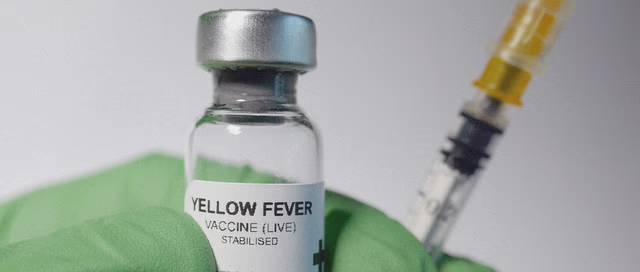
What side effects are associated with the yellow fever vaccine?

Typhoid vaccine
Before travelling outside the UK it is important to check whether there are any vaccinations available which could protect you. You can do this by making a travel planning appointment at your GP surgery. During your consultation a specialist travel nurse will complete a risk assessment to determine which vaccines are right for you. If your GP does not offer this service, or does not have an appointment available before you travel, then you will need to seek this advice from a private travel clinic.
There are also several websites which aim to offer up-to-date, country-specific advice on vaccinations and on disease patterns.
You can find out if travel vaccines are recommended for any countries you are planning to visit from the Travel Health Pro website or NHS website Fitfortravel if you are in Scotland.
Vaccination courses need to be planned well in advance. Some vaccinations involve a course of injections at specified intervals and it can take up to six months to complete a course. Some vaccinations can't be given together.
The following table lists the travel vaccinations which are available and in common use in the UK. Always check with your surgery or online before travelling, particularly to unusual destinations, for local outbreaks of disease which mean other specific vaccinations are advised.
Travel vaccinations (adults)
The protection offered by vaccination is not always 100%. Vaccination will greatly reduce your chances of acquiring the disease and in many cases the protection level offered is extremely high. The protection will also not be lifelong. However, there isn't a vaccine available for every disease - for example, there is none at present against malaria.
Even where a vaccine is available, vaccination should not be the only thing you rely on for protection against illness. It is important to know the risks; taking sensible steps to avoid exposing yourself to disease is by far the most useful thing you can do.
Pregnant women
It is important that pregnant women also receive the necessary vaccinations before travelling. Some vaccines, however, are not safe to use in pregnancy - see table below. In some cases your doctor or nurse may ask you to consider whether the journey could wait until after the birth of your baby, as the risks of disease may be very real and you may be unable to fully protect yourself and your baby.
There is currently no vaccine or medicine to prevent Zika virus, which is transmitted by Aedes mosquitoes and which is of particular concern to pregnant women due to its link to birth defects. The recent outbreak of the virus is currently considered a Public Health Emergency of International Concern. See the separate leaflet called Zika Virus.
No vaccination is available against malaria. People who live permanently in malarial zones have partial protection but they lose this swiftly when they move away. Protection against malaria is through a combination of avoidance of mosquito bites and the use of malaria tablets.
Tablets have to be started before entering the malarial zone and continued for some days or weeks after leaving it. The recommended tablet regime varies by area. Your practice nurse will have access to up-to-date advice on recommendations for your journey. See the separate leaflet called Malaria Prevention for more details.
There are many tropical diseases for which no vaccination is yet available. These include:
Insect (arthropod)-borne viruses such as dengue, Zika and chikungunya .
Infections carried by water-dwelling organisms such as bilharzia and flukes
Parasitic diseases such as leishmaniasis, onchocerciasis, trypanosomiasis and hydatid disease. Parasites are living things (organisms) that live within, or on, another organism.
There is also as yet no vaccine against HIV .
Most of these conditions can be avoided by travellers taking reasonable precautions around:
Food and drink.
Swimming in water known to be infested with parasitic organisms.
Exposure to biting insects.
Unprotected sexual encounters.
People often at greatest risk when travelling are those visiting a country which they think of as their place of origin, where members of their family live and roots may be. People often believe - falsely - that as one-time residents who may have been born and raised there, they have a natural immunity. They feel that they are not on holiday but visiting home and that vaccinations aren't needed.
Unfortunately this is not true. We acquire natural immunity by living in a place and being constantly exposed to the diseases that are present. When we leave the area for distant shores that protection is rapidly lost and we need the protection of vaccination, together with the other precautions listed above.
This is particularly true of malaria, where visitors 'going back home' may find their relatives puzzled and even amused that they are taking anti-malarial medication. Even so, it's very important to do so. It's only by living there all the time that you acquire your resident relatives' level of immunity. Your immune system has a short memory for this sort of partial immunity.
Many NHS surgeries offer a full range of travel vaccinations. However, your surgery may not have the resources to fit you in before you travel. Alternatively, you can visit private specialist travel clinics.
The NHS does not usually cover travellers for vaccinations relating to exotic travel, although some vaccinations such as hepatitis A are usually free. Aid workers and healthcare workers are often offered free vaccinations against occupational risks but others have to pay.
Anti-malarial tablets are never free and can add a substantial sum to the cost of your trip. Whilst this may seem expensive, it is usually a small sum relative to the costs of your travel. Safeguarding your health should be considered an essential part of any trip.
If a vaccination certificate is issued keep it and update it over the years so that you have a full record. Your NHS surgery will have a record of vaccines they have administered to you and can often issue a copy. However, the yellow fever vaccination certificate needs to be saved, as this cannot be re-issued.
Further reading
There are many excellent websites offering detailed advice for travellers by country and region. You will find a selection under 'Further Reading and References', below.
Dr Mary Lowth is an author or the original author of this leaflet.
Further reading and references
- Travel Health Pro ; National Travel Health Network and Centre (NaTHNaC)
- Travelling if you have a medical condition ; British Airways (includes downloadable MEDIF forms)
- Immunisation against infectious disease - the Green Book (latest edition) ; UK Health Security Agency.
- Travellers' Health ; US Centers for Disease Control and Prevention
Article History
The information on this page is written and peer reviewed by qualified clinicians.
Next review due: 9 Feb 2028
10 feb 2023 | latest version.
Last updated by
Peer reviewed by
29 Apr 2014 | Originally published
Authored by:

Feeling unwell?
Assess your symptoms online for free
Travel health advice and travel vaccinations
You should make an appointment for a travel health risk assessment if you’re travelling abroad and think you need:
- a malaria risk assessment
- further advice
A travel health professional will take you through your travel health risk assessment.
Your GP is no longer your point of contact for a travel health risk assessment, including travel vaccines.
NHS travel health service
NHS Scotland provides a travel health service that includes some free vaccines.
To find information on how to make an appointment for a travel health risk assessment in Scotland, contact the NHS health board where you live.
Private travel clinics
You can also visit an independent (private) travel clinic for:
- a travel health risk assessment
- travel advice
- other travel vaccines
You should arrange a travel health risk assessment 6 to 8 weeks before you travel. This gives time for any vaccines you need to become fully effective.
If your trip is sooner, remember it’s never too late to get advice.
Travel health risk assessment
If you’re planning to travel outside the UK, your travel health needs will depend on your individual situation. This includes:
- your destination
- how long you’ll stay
- what you’ll be doing
- your general health
The fitfortravel website provides country-specific advice on:
- recommended vaccines
- other risk prevention advice
If you think you need vaccines and/or a malaria risk assessment, you should make an appointment with a travel health professional.
A travel health risk assessment is also recommended for some people, even when vaccines or malaria tablets aren’t required. This includes:
- older people
- those with a weakened immune system
- those with long-term conditions that need medications
- pregnant women
Travel vaccines
The following travel vaccines are free on the NHS in Scotland:
- diphtheria, polio and tetanus (combined booster)
- hepatitis A
It’s likely that you’ll have to pay for vaccines against:
- yellow fever
- Japanese encephalitis
- tick-borne encephalitis
You may also have to pay for the following vaccines if they’re only needed for travel purposes:
- hepatitis B
- tuberculosis (TB)
Proof of vaccination
To enter some countries you may need proof that you have had particular vaccines. This includes the yellow fever vaccine.
Yellow fever vaccines are only available from designated centres. To find out if you need a yellow fever vaccine or proof of the vaccine, you should contact a yellow fever clinic.
To request a list of any other vaccines held on your GP record, contact your GP practice. GP practices cannot provide proof of COVID vaccine.
Preventing risk while travelling
Vaccines or anti-malarial tablets will not protect against all travel health risks. This means you’ll need to take extra steps to protect your health whilst travelling abroad.
The fitfortravel website has further advice on preventing health risks whilst travelling. This includes information on:
- general travel advice
- disease prevention
Travelling abroad to visit friends and relatives
If you’re travelling abroad to visit friends or relatives, you may be at higher risk of developing travel-related illnesses. For example, malaria or typhoid. This could be because:
- you may be living with the local community
- your trip might be longer than the average holiday
- you might be visiting more rural areas where it’s difficult to take precautions that reduce your risk
The fitfortravel website provides information and advice on visiting friends and family abroad .
Travel safety advice
You can find country-specific safety and security advice through the UK government website .
Travel insurance advice
Many countries don’t have the same access to medical treatments as the UK and can be expensive.
It’s recommended that all travellers get comprehensive travel insurance before travelling.
When you return home
If you become unwell and/or develop a fever when you return home, it’s important to get medical advice as soon as possible. You should seek medical help even if it’s up to 1 month after you’ve been travelling.
Always make sure you tell the health professional that you’ve recently travelled abroad. This is especially important if you have been to a country where malaria is a risk.
Donating blood after travelling abroad
Travel outside the UK can affect whether you can give blood donations. This is because some infections may be caught abroad. This is usually through mosquito or other insect bites.
There are conditions for donating blood if you’ve been to certain countries. This can depend on your length of stay and some other factors.
Further information on donating blood after travelling abroad

Source: Public Health Scotland - Opens in new browser window
Last updated: 01 March 2024
Help us improve NHS inform
Your feedback has been received
Don’t include personal information e.g. name, location or any personal health conditions.


Travel vaccinations
On this page, available vaccines.
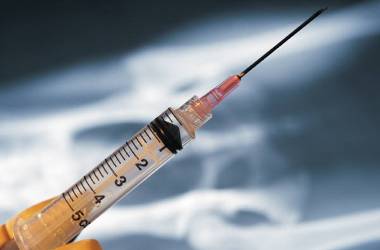
If you're planning to travel outside the UK, you may need to be vaccinated against some of the serious diseases found in other parts of the world.
Vaccinations are available to protect you against infections such as yellow fever, typhoid and hepatitis A.
In the UK, the NHS routine immunisation (vaccination) schedule protects you against a number of diseases, but does not cover all of the infectious diseases found overseas.
When should I start thinking about the vaccines I need?
If possible, see the GP or a private travel clinic at least 8 weeks before you're due to travel.
Some vaccines need to be given well in advance to allow your body to develop immunity.
And some vaccines involve a number of doses spread over several weeks or months.
You may be more at risk of some diseases, for example, if you're:
- travelling in rural areas
- backpacking
- staying in hostels or camping
- on a long trip rather than a package holiday
If you have a pre-existing health problem, this may make you more at risk of infection or complications from a travel-related illness.
Which travel vaccines do I need?
You can find out which vaccinations are necessary or recommended for the areas you'll be visiting on these websites:
- Travel Health Pro
- NHS Fit for Travel
Some countries require proof of vaccination (for example, for polio or yellow fever vaccination), which must be documented on an International Certificate of Vaccination or Prophylaxis (ICVP) before you enter or when you leave a country.
Saudi Arabia requires proof of vaccination against certain types of meningitis for visitors arriving for the Hajj and Umrah pilgrimages.
Even if an ICVP is not required, it's still a good idea to take a record of the vaccinations you have had with you.
Where do I get my travel vaccines?
First, phone or visit the GP practice or practice nurse to find out whether your existing UK vaccinations are up-to-date.
If you have any records of your vaccinations, let the GP know what you have had previously.
You should also ask if the GP practice is signed up to provide free NHS vaccinations for travel, as not all GP practices are.
If the GP practice does not provide NHS vaccinations for travel, you can try a:
- private travel vaccination clinic
- pharmacy offering travel healthcare services
The GP or practice nurse may be able to give you general advice about travel vaccinations and travel health, such as protecting yourself from malaria.
They can give you any missing doses of your UK vaccines if you need them.
Not all travel vaccinations are available free on the NHS, even if they're recommended for travel to a certain area.
If the GP practice is signed up to provide NHS travel vaccines, these can be provided to you free of charge.
Other non-NHS travel vaccines may be charged for by the GP.
If the GP practice can give you the travel vaccines you need but they are not available on the NHS, ask for:
- written information on what vaccines are needed
- the cost of each dose or course
- any other charges you may have to pay, such as for some certificates of vaccination
Which travel vaccines are free?
The following travel vaccines are available free on the NHS if your GP practice is signed up to provide vaccination (immunisation) services.
- polio (given as a combined diphtheria/tetanus/polio jab)
- hepatitis A
These vaccines are free because they protect against diseases thought to represent the greatest risk to public health if they were brought into the country.
Which travel vaccines will I have to pay for?
You'll have to pay for travel vaccinations against:
- hepatitis B
- Japanese encephalitis
- meningitis vaccines
- tick-borne encephalitis
- tuberculosis (TB)
- yellow fever
Yellow fever vaccines are only available from designated centres .
The cost of travel vaccines that are not available on the NHS will vary, depending on the vaccine and number of doses you need.
It's worth considering this when budgeting for your trip.
Other things to consider
There are other things to consider when planning your travel vaccinations, including:
- your age and health – you may be more vulnerable to infection than others; some vaccines cannot be given to people with certain medical conditions
- working as an aid worker – you may come into contact with more diseases in a refugee camp or helping after a natural disaster
- working in a medical setting – a doctor, nurse or another healthcare worker may require additional vaccinations
- contact with animals – you may be more at risk of getting diseases spread by animals, such as rabies
If you're only travelling to countries in northern and central Europe, North America or Australia, you're unlikely to need any vaccinations.
But it's important to check that you're up-to-date with routine vaccinations available on the NHS.
Pregnancy and breastfeeding
Speak to a GP before having any vaccinations if:
- you're pregnant
- you think you might be pregnant
- you're breastfeeding
In many cases, it's unlikely a vaccine given while you're pregnant or breastfeeding will cause problems for the baby.
But the GP will be able to give you further advice about this.
People with immune deficiencies
For some people travelling overseas, vaccination against certain diseases may not be advised.
This may be the case if:
- you have a condition that affects your body's immune system, such as HIV or AIDS
- you're receiving treatment that affects your immune system, such as chemotherapy
- you have recently had a bone marrow or organ transplant
A GP can give you further advice about this.
Non-travel vaccines
As well as getting any travel vaccinations you need, it's also a good opportunity to make sure your other UK vaccinations are up-to-date and have booster vaccines if necessary.
People in certain risk groups may be offered extra vaccines.
These include vaccinations against diseases such as:
The following vaccinations are available for people travelling abroad.
Cholera vaccination
Vaccination against cholera isn't routinely needed for most travellers.
But in some cases it may be recommended for aid workers and people likely to have limited access to medical services – for example, people working in refugee camps or after natural disasters.
Most cases of cholera are confined to regions of the world with poor sanitation and water hygiene, such as parts of:
- sub-Saharan Africa
- south and southeast Asia
- the Middle East
- Central America and the Caribbean
The vaccine is usually given as a drink in 2 separate doses, taken 1 to 6 weeks apart.
Children aged 2 to 6 years old should have a third dose taken 1 to 6 weeks after the second dose.
You should make sure you have the final dose of this vaccine at least a week before you travel.
A single booster dose or full revaccination is usually recommended if you have previously been vaccinated against cholera and you're planning to travel to an area where the infection is common.
Diphtheria vaccination
A combined vaccination that protects against diphtheria, polio and tetanus is routinely given to all children in the UK.
You should make sure you and your children are up-to-date with your routine vaccinations before travelling.
Further booster doses are usually only recommended if you're going to visit parts of the world where diphtheria is widespread and your last vaccination dose was more than 10 years ago.
Diphtheria is more common in parts of the world where fewer people are vaccinated, such as:
- the former Soviet Union
Additional doses of the vaccination are given in a single 3-in-1 Td/IPV (tetanus, diphtheria and polio) injection.
Hepatitis A vaccination
Vaccination against hepatitis A is recommended if you're travelling to countries where there are poor levels of sanitation and hygiene, and hepatitis A is common.
Ask your GP, pharmacy or travel clinic if you should have the hepatitis A vaccine if you're travelling to:
- South and Central America
The vaccination against hepatitis A is usually given as a single initial injection, with a second dose 6 to 12 months later. Two doses should protect you for at least 20 years.
You should preferably have the initial dose at least 2 weeks before you leave, although it can be given up to the day of your departure if needed.
Jabs that offer combined protection against hepatitis A and hepatitis B or typhoid are also available if you're likely to also be at risk of these conditions.
Hepatitis B vaccination
Vaccination against hepatitis B is recommended if you're travelling in parts of the world where hepatitis B is common, especially if you'll be doing activities that increase your risk of developing the infection.
Hepatitis B is spread through blood and body fluids. Things like having sex, injecting drugs or playing contact sports on your travels can increase your risk.
Anyone travelling for long periods or who's likely to need medical care while abroad is also at increased risk.
Hepatitis B is found worldwide, but it's more common in parts of:
- southern and eastern Europe
The hepatitis B vaccination generally involves a course of 3 injections. Depending on how quickly you need protection, these may be spread over a period as long as 6 months or as short as 3 weeks.
A combined hepatitis A and hepatitis B jab is also available if you're likely to be at risk of both these conditions while travelling.
Japanese encephalitis vaccination
Vaccination against Japanese encephalitis is usually recommended if you're planning a long stay (usually at least a month) in a country where you could get the condition.
It's particularly important if:
- you're visiting during the rainy season or there's a year-round risk because of a tropical climate
- you're going to visit rural areas, such as rice fields or marshlands
- you'll be taking part in any activities that may increase your risk of becoming infected, such as cycling or camping
Japanese encephalitis is found throughout Asia and beyond. The area it's found in stretches from the western Pacific islands in the east, across to the borders of Pakistan in the west.
It's found as far north as northeastern China and as far south as the islands of the Torres Strait and Cape York in northeastern Australia.
Despite its name, Japanese encephalitis is now relatively rare in Japan because of mass immunisation programmes.
Find out more about risk areas on the Travel Health Pro website
Vaccination against Japanese encephalitis usually consists of 2 injections, with the second dose given 28 days after the first.
Ideally, you need to have the second dose a week before you leave.
Meningococcal meningitis vaccination
Vaccination against some types of meningococcal meningitis is usually recommended if you're travelling to areas at risk and your planned activities put you at higher risk – for example, if you're a long-term traveller who has close contact with the local population.
High-risk areas for meningococcal meningitis include parts of Africa and Saudi Arabia during the mass gatherings of Hajj or Umrah.
All travellers to Saudi Arabia for the Hajj or Umrah pilgrimages are required to show proof of vaccination.
If travelling to a high-risk area, you should be vaccinated against meningococcal meningitis with a MenACWY vaccine, also known as the quadrivalent meningococcal meningitis vaccine.
This is a single injection that should be given 2 to 3 weeks before you travel. Babies under a year old need 2 injections.
You should have the MenACWY vaccine before travelling to high-risk areas, even if you had the meningitis C vaccine as a child.
Measles, mumps and rubella (MMR) vaccination
The MMR vaccine that protects against measles, mumps and rubella is routinely given to all children in the UK.
You should make sure you and your children are up-to-date with routine vaccinations, including MMR, before travelling.
If you haven't been fully vaccinated against these conditions or you're not already immune, you should ask about MMR vaccination before you travel.
The MMR vaccine is given as 2 injections. These are usually given when a child is 12 to 13 months old and when they start school.
But if vaccination has been missed previously, adults can have the doses 1 month apart, and children can have them 3 months apart if necessary.
You should ideally have the final dose at least 2 weeks before you leave.
Polio vaccination
A combined vaccination that protects against diphtheria, polio and tetanus is routinely given to all children in the UK.
Further booster doses are usually only recommended if you're going to visit parts of the world where polio is, or has recently been, present and your last vaccination dose was more than 10 years ago.
Currently, the condition is most common in Pakistan, Afghanistan and Nigeria, but it's also a risk in other regions of the world.
Rabies vaccination
Vaccination against rabies is advised if you're travelling to an area where you could get rabies, particularly if:
- you're staying for a month or more
- there's unlikely to be quick access to appropriate medical care
- you plan to do activities that could put you at increased risk of exposure to rabies, such as cycling or running
Rabies can be found in many parts of the world. GOV.UK provides a detailed list of countries that have rabies in domestic animals or wildlife .
Vaccination involves a course of 3 injections before you travel, usually given over a period of 28 days.
If you're bitten, licked or scratched by an animal in a country where rabies is a problem, further doses of rabies vaccine (with or without a special anti-rabies injection given around the wound) may be required as emergency treatment.
Tetanus vaccination
Further booster doses are usually only recommended if you're travelling to areas where access to medical services is likely to be limited or your last vaccination dose was more than 10 years ago.
Tick-borne encephalitis vaccination
Vaccination against tick-borne encephalitis (TBE) is usually recommended for anyone who plans to live or work in a high-risk area, or hike and camp in these areas during late spring or summer.
The ticks that cause TBE are mainly found in forested areas of central, eastern and northern Europe, although at-risk areas also include eastern Russia and some countries in east Asia, including some regions of China and Japan.
The vaccination requires a course of 3 injections for full protection. The second dose is given 1 to 3 months after the first and provides immunity for about a year.
A third dose, given 5 to 12 months after the second, provides immunity for up to 3 years.
The course can sometimes be accelerated if necessary. This involves 2 doses being given 2 weeks apart.
Booster doses of the vaccine are recommended every 3 years, if necessary.
Tuberculosis (TB) vaccination
The BCG vaccine (which stands for Bacillus Calmette-Guérin vaccine) protects against tuberculosis, which is also known as TB.
The BCG vaccine isn't given as part of the routine NHS vaccination schedule. It's given on the NHS only when a child or adult is thought to have an increased risk of coming into contact with TB.
When preparing for travel abroad, the BCG vaccine is recommended for any unvaccinated people under 16 who'll be living or working with friends, family or local people for more than 3 months in a country where TB is common or the risk of multi-drug resistant TB is high.
The BCG vaccine is given as a single injection.
Areas of the world where the risk of TB is high enough to recommend BCG vaccination for previously unvaccinated travellers include:
- the Indian subcontinent (Bangladesh, Pakistan, India)
- parts of south and southeast Asia
- parts of South and Central America
- parts of the Middle East
Typhoid vaccination
Vaccination against typhoid fever is recommended if you're travelling to parts of the world where the condition is common, particularly if you'll:
- have frequent or prolonged exposure to conditions where sanitation and food hygiene are likely to be poor
- be staying or working with local people
High-risk areas include:
Two main vaccines are available for typhoid fever in the UK. One is given as a single injection, and the other is given as 3 capsules to take on alternate days.
It's also possible to have a combined hepatitis A and typhoid jab.
Ideally, the typhoid vaccine should be given at least 1 month before you travel, but it can be given closer to your travel date if necessary.
Booster vaccinations are recommended every 3 years if you continue to be at risk of infection.
Yellow fever vaccination
Vaccination against yellow fever is advised if you're travelling to areas where there's a risk of getting yellow fever.
Some countries require a proof of vaccination certificate before they let you enter the country.
Yellow fever occurs in some areas of tropical Africa and Central and South America. More information about yellow fever and areas where it's found is available on Travel Health Pro .
A single dose of the yellow fever vaccine is thought to provide lifelong protection. For most people, a booster dose is no longer recommended.
You must have a yellow fever vaccination at least 10 days before you travel.
You should be issued with an International Certificate of Vaccination or Prophylaxis when you have the vaccine. This certificate is valid for life.
When to get further advice
Speak to your GP before having any vaccinations if:
- you have an immune deficiency
- you have any allergies
Welsh Government Leaflets
Am I at risk of Hepatitis B? pdf
Travel immunisation poster pdf

Last Updated: 25/05/2021 10:09:18
Cookies on GOV.UK
We use some essential cookies to make this website work.
We’d like to set additional cookies to understand how you use GOV.UK, remember your settings and improve government services.
We also use cookies set by other sites to help us deliver content from their services.
You have accepted additional cookies. You can change your cookie settings at any time.
You have rejected additional cookies. You can change your cookie settings at any time.
- Health and social care
- Public health
- Health protection
- Immunisation
Travellers urged to check on vaccinations to protect against risks
UKHSA urges overseas travellers, including Hajj pilgrims, to check well in advance to ensure they are up to date and have all necessary vaccinations

The UK Health Security Agency ( UKHSA ) is reminding summer holiday-makers, as well as Hajj and Umrah pilgrims, of the importance of ensuring they and any children, are fully up to date with all routine NHS vaccinations before travelling overseas - as well as checking they have any necessary additional vaccines for the countries and regions they are visiting.
Overseas travellers should check well in advance of their trip, to ensure they have enough time to get any necessary vaccinations - being mindful that it can take a few weeks following vaccination for the immunity to take effect. It is vital that anyone travelling, particularly young children who are more vulnerable to severe illness, are up to date with their routine NHS vaccinations - including MMR (measles, mumps, and rubella), polio, hepatitis, meningitis, and tetanus. This is because these infections can be more common in some countries.
Some regions and countries will also have specific vaccine requirements or entry restrictions, so it’s important to have any additional necessary vaccinations to protect against serious health risks, as well as avoiding any travel complications or disruptions.
The Travel Health Pro website – supported by UKHSA – has up-to-date information on health risks in countries across the world and is a one-stop-shop for information to help people plan their trip abroad. Ideally travellers should consult their GP, practice nurse, pharmacist, or travel clinic 4 to 6 weeks before their trip for individual advice, travel vaccines and malaria prevention tablets, if relevant for their destination. Foreign travel advice is also available on GOV.UK.
Measles risk overseas
The World Health Organization recently repeated their warning on the growing measles threat due to sub-optimal vaccination rates around the world, highlighting that more than half the world faces high measles risk, including parts of Europe, where the organisation warned of a sharp increase in measles cases in the European region , putting millions at risk.
There is also a real concern of unvaccinated travellers bringing diseases like measles back into the UK from other countries experiencing high circulation, putting other unprotected family members, friends and those in their community at risk.
UKHSA ’s current childhood vaccinations campaign is reminding parents of the importance of ensuring their children are vaccinated on time. Parents should check their child’s Red Book now to ensure that children have had their MMR and other routine vaccines. If you’re unsure, get in touch with your GP practice and if needed they will bring you or your child up to date. Anyone, including adults, can get the MMR vaccines for free on the NHS if they have missed out.
Dr Mary Ramsay, Head of Immunisation at UKHSA , said:
Nobody wants to get stricken down with sickness on their holidays or when travelling far away from home and it can be especially stressful and worrying if your child gets ill - sadly this does happen, but for many serious illnesses it is preventable. That’s why it’s so important if you’re going on holidays overseas to be sure that you and all your family, especially young children, are up to date with all routine NHS vaccines well before you travel, in particular both MMR vaccines. Measles is one of the most highly infectious diseases and some countries are currently seeing very large outbreaks. There is also the risk of returning home and spreading measles to unvaccinated family and friends, with infants and pregnant women at high risk of serious illness or life-long complications.
Hajj and Umrah
Large gatherings such as Hajj and Umrah are associated with unique health risks and those travelling to the Middle East are urged to be mindful of good general health practices that can help protect against Middle East Respiratory Syndrome (MERS-CoV) and meningitis. TravelHealthPro provides travel health advice for pilgrims attending these events.
Meningitis is an infection of the protective membranes that surround the brain and spinal cord. It is most common in young children but can affect persons of any age.
The MenACWY vaccine is routinely given to teenagers in school at around 14 years of age but is available free up to 25 years of age if it’s been missed. It provides high protection against four common types of meningococcal disease (that causes meningitis and septicaemia) – MenA, MenC, MenW and MenY. Babies are given the MenB vaccine to help protect against another common form of meningococcal disease.
Due to previous meningitis outbreaks in the Kingdom of Saudi Arabia, all visitors aged over one year arriving for Umrah and Hajj or adults coming into the country for seasonal work are required to submit a valid vaccination certificate with a proof of the MenACWY vaccine received at least 10 days prior to their arrival to Hajj and Umrah areas.
Dr Naveed Syed, Consultant in Communicable Disease Control at UKHSA , said:
Being healthy while travelling and attending Hajj and Umrah allows us to focus fully on our worships and rituals. That is why we encourage everyone going on these pilgrimages to ensure they are up to date with their vaccinations and to be mindful of good hand and respiratory hygiene to reduce the risk of infection and limiting spread to other people. If you experience symptoms such as fever, cough, or shortness of breath within 14 days of leaving the Kingdom of Saudi Arabia or the Middle East, please contact your GP or NHS 111 without delay and inform them about your recent travel history.
Dr Dipti Patel, Director of the National Travel Health Network and Centre, said:
If you’re making plans to travel abroad this year, it’s well worth prioritising your health and planning ahead. Check the relevant country information pages on our website, TravelHealthPro, and ideally speak to your GP or a travel health clinic 4 to 6 weeks ahead of travelling to ensure you have had all the necessary vaccinations and advice you need to help make your trip a memorable one for all the right reasons. When you return to the UK, if you feel unwell, get medical attention promptly and be sure to tell those treating you that you have been travelling recently.
UK Health Security Agency press office
10 South Colonnade London E14 4PU
Email [email protected]
Share this page
The following links open in a new tab
- Share on Facebook (opens in new tab)
- Share on Twitter (opens in new tab)
Is this page useful?
- Yes this page is useful
- No this page is not useful
Help us improve GOV.UK
Don’t include personal or financial information like your National Insurance number or credit card details.
To help us improve GOV.UK, we’d like to know more about your visit today. We’ll send you a link to a feedback form. It will take only 2 minutes to fill in. Don’t worry we won’t send you spam or share your email address with anyone.
Travel Vaccinations
BACK TO MAIN INDEX
If you are going abroad please contact the surgery to check whether you will need any travel vaccinations or book an appointment with our dedicated travel nurse. Not all the vaccinations we provide are free; a charge may apply. Please ask at reception for more details. If you go abroad regularly please discuss this with a nurse as it may be possible for you to gain long-term immunity by having follow-up immunisations. For more information about travel vaccines go to the fit for travel website or head to the Travel Health site . Register for a European Health Insurance Card (EHIC) if you are planning to travel to countries in the European Union, Iceland, Liechtenstein, Norway or Switzerland.

The responsibility for all aspects of preparation for travel abroad must remain with the individual. We offer travel advice and the necessary injections in our travel clinics run by our practice nurse. We offer ONLY the free NHS vaccines. Some additional vaccines you may have to attend a local travel centre and will need to pay for these. Initially you will need to carry out a risk assessment on your travel plans, proposed itinerary and review any vaccinations needed. This may also include whether or not malaria prevention tablets are also necessary.
Immunisations can take weeks to become effective so in order to ensure enough time for this it is advisable to contact the practice well in advance of your planned departure, at least 8-10 weeks prior to travel. For those with a complicated itinerary or who are intending to go ‘back-packing’ we would recommend contacting us several months in advance if possible.
You will be given the option of providing your travel information via email or by a printed hard copy via the surgery reception, and a nurse will subsequently advise you via telephone call, or text SMS message in response to this (the options of how we respond to you are on the form for you to choose your preferred method of contact). You will then be advised what vaccines are recommended for your trip, and the amount of time that you are likely to need for your travel appointment at the surgery, if necessary. Further appointments may need to be made after this in order to provide further vaccinations. To try our online travel service please complete the ‘Travel Risk Questionnaire’ form below and one of the team will respond to you within 7 to 14 working days.
TRAVEL RISK QUESTIONNAIRE
ADELAIDE SITE
Western Community Hospital Campus William Macleod Way Millbrook Southampton SO16 4XE
Tel: 0300 123 6066
NICHOLSTOWN SITE
Nicholstown Surgery Fanshawe Wing, Level B Royal South Hants Hospital Brinton Terrace Southampton, Hampshire, SO14 0YG
Tel: 0300 123 7651
PORTSWOOD SITE
Portswood Solent Surgery 7 Belmont Road Portswood Southampton, Hampshire SO17 2GD
Tel: 0300 300 2020
We use cookies to help provide you with the best possible online experience. By using this site, you agree that we may store and access cookies on your device. Cookie policy . Cookie settings .
Functional Cookies
Functional Cookies are enabled by default at all times so that we can save your preferences for cookie settings and ensure site works and delivers best experience.
3rd Party Cookies
This website uses Google Analytics to collect anonymous information such as the number of visitors to the site, and the most popular pages. Keeping this cookie enabled helps us to improve our website.
Book travel vaccinations
If you're planning to travel outside the UK, the surgery can help with travel advice and information about vaccines for travel.
You must request travel advice at least 8 weeks before your departure date.
This is because some vaccines:
- need to be given in advance to let your body develop immunity
- involve a number of doses over weeks or months
The NHS is only able to provide specific vaccinations to its NHS patients for travel. These include:
- Hepatitis A
- Polio
Contact the surgery using an online form
You can use an online form to find out what vaccinations you need.
We’ll review your answers and contact you to arrange an appointment if you need to be vaccinated.
Contact the surgery by phone
You can contact the surgery to ask about what vaccinations you need and request your appointment.
See surgery contact details
Find out more
Check the latest guidance about NHS travel vaccinations .
Travel vaccines
On this page.
You can get vaccinations for international travel at local community pharmacies.
What is a travel health service?
If you are planning to travel outside the UK your travel health needs will depend on your individual situation and the following considerations:
- your general health
- where you are travelling to
- where you will be staying
- how long you will be staying
- what you will be doing throughout your trip
Lots of useful travel health information is available online at Fit for Travel , provided by NHS Scotland. It is important that you read through the information available here, before arranging a travel consultation with the community pharmacy NHS Highland Travel Health Service.
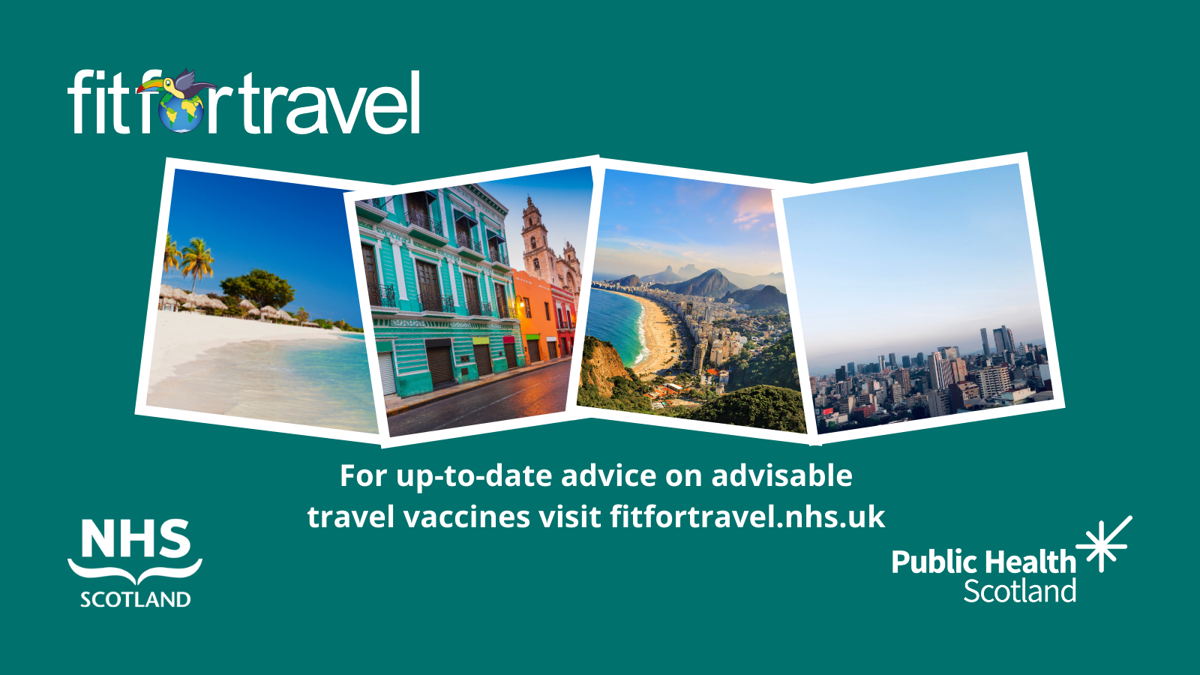
Travel Health Service at community pharmacies
The NHS Highland Travel Health Service will provide you with all of the information that you require to keep yourself and your family safe.
Listed below are the community pharmacies across Highland that provide this specialist NHS travel health service. While this new service gets up and running some GP practices may still be offering travel vaccines to their registered patients.
Once you have read through the information on Fit for Travel , you may require an assessment, further advice and vaccinations before you travel.
Please contact any of the participating community pharmacies to agree a suitable appointment for your consultation to allow them to complete a full travel risk assessment. Travel health appointments should ideally take place 8 weeks before you intend on travelling to ensure any vaccinations provided take full effect before your trip.
- Alness - Alness Pharmacy
- Beauly - Your Local Boots Pharmacy
- Campbeltown (Longrow South) - Your Local Boots Pharmacy
- Conon Bridge - Conon Bridge Pharmacy
- Dingwall - Dingwall Pharmacy
- Dornoch - Mitchells Chemist
- Fort Augustus - Fort Augustus Pharmacy
- Helensburgh - Rowlands Pharmacy
- Inverness - Care Pharmacy (Cradlehall)
- Inverness - Dalneigh Pharmacy
- Inverness - Lochardil Pharmacy
- Inverness - Rowlands Pharmacy (Balloan Park)
- Inverness - Superdrug
- Kyle of Lochalsh - Right Medicine Pharmacy
- Lochgilphead - Truhealth
- Muir of Ord - Right Medicine Pharmacy
- Newtonmore - Strathspey Pharmacy
- Spean Bridge - MhorHealth Pharmacy
- Tornagrain - Tornagrain Pharmacy
Map of pharmacies providing travel vaccines
What travel vaccines are provided for free by the NHS?
The following travel vaccines continue to be available free on the NHS to citizens living in Scotland for the purpose of travel:
- hepatitis A
- diptheria, polio, tetanus (administered as a combined vaccine)
The above vaccines are free as they protect against diseases that are considered to present the greatest risk to public health if they were to be brought into the country.
What can I expect when I attend the community pharmacy?
You will receive your consultation in a private room which is fit for purpose.
The pharmacist will ask about your travel plans, which countries you are travelling to, rural or city sites, what time of year?
You will be asked about your previous vaccination history. If you have a vaccination card please take it with you.
The pharmacist will ask about your current and previous health concerns. If you have a repeat medication list, please take it with you.
The pharmacist will advise you on what vaccinations you require, which ones are provided free on the NHS and which ones you will have to pay for. They will also advise on whether you need to take tablets to help prevent you getting malaria.
The pharmacist will give you advice on other travel health issues and will give you a leaflet or a web address where you can find out more information.
If you require vaccination then the pharmacist can give you your vaccination there on the day or they may have to order the vaccine in which case they will arrange another appointment that suits you. They will advise you on any side effects and what you can do to reduce them.
The pharmacist will record all of the vaccinations they give you and this will be entered into your GP notes.
If you need to pay for any vaccines, you will need to pay the pharmacist at the time you get your vaccination.
Also available:
- portable hearing loops
- a quiet space/room
- all sites have access to language interpretation support
Important: Share your COVID Status when travelling internationally
Download the NHS Scotland COVID Status app.
Your COVID Status (or COVID passport) contains details of your vaccination record.
Immunisation and vaccines
Covid-19 spring vaccine.
Don’t let your protection fade this spring.

Coronavirus (COVID-19) and flu vaccinations
It's strongly recommended you get vaccinated for flu and coronavirus. Vaccines were offered to those eligible this pa...
Vaccinations for adults
Routine vaccinations for adults, and for during pregnancy.
Pneumococcal vaccinations
The pneumococcal polysaccharide vaccine is also known as the PPV, pneumococcal or 'pneumo' vaccine.
Shingles vaccinations
Adults in Scotland are offered routine vaccination for shingles at age 65, or 70 or over.
Vaccinations for babies, children and young people
Vaccinations available for babies, pre-school children and young people from 11 years.
Child flu vaccination
NHS Scotland recommends all eligible children should get the vaccine to help protect them from influenza (flu).
Last updated: 9 February 2024
Next review date: 5 August 2024
Something wrong or missing on this page?
Contact the Web Manager
We are currently experiencing an issue with displaying some local service information including:
- Find Your Nearest
- information relating to opening times and other details for individual GP practices, dental practices, pharmacies and opticians
We hope to have this issue resolved shortly.
Head Office
NHS Highland Assynt House Beechwood Park Inverness IV2 3BW
- Your opinions
- Care Opinion
- Communications and Engagement
- Website and accessibility
- Main switchboard
Internet explorer is no longer supported
We have detected that you are using Internet Explorer to visit this website. Internet Explorer is now being phased out by Microsoft. As a result, NHS Digital no longer supports any version of Internet Explorer for our web-based products, as it involves considerable extra effort and expense, which cannot be justified from public funds. Some features on this site will not work. You should use a modern browser such as Edge, Chrome, Firefox, or Safari. If you have difficulty installing or accessing a different browser, contact your IT support team.
Vaccinations National Booking Service
We're providing systems that enable people to book appointments at sites across England.
If you have received a letter inviting you to book an appointment, go to the Book a coronavirus vaccination service
About this service
We're providing systems that enable people to book appointments across England.
The Vaccinations National Booking Service is made up of:
- an online booking service available to the public on the NHS website to book a coronavirus (COVID-19) vaccination appointment
- an online booking service available to the public on the NHS website to book or manage a free NHS flu vaccination at a pharmacy
- an appointment management system for staff working at vaccination centres and community pharmacies offering coronavirus and flu vaccinations - Q-Flow
- an app for checking people into their appointments when they arrive at vaccination sites - the Check a vaccination appointment service (Check-In App)
- a training tool for 119 agents to familiarise themselves with the various booking journeys so they can support the public
NHS App users can also book or manage a coronavirus (COVID-19) vaccination appointment.
There is also a telephone service, 119, for people who cannot or do not want to use the online booking service. NHS England runs this. The phoneline operators use the Book a coronavirus vaccination service on behalf of callers.
Other local solutions are in place, in addition to the Vaccinations National Booking Service, to enable hospital hubs and primary care networks to offer appointments to patients.
Primary care networks can choose from an assured selection of appointment management systems through the Digital Care Services Framework (GP IT Futures).
Online booking service to book a coronavirus (COVID-19) vaccination appointment
The coronavirus vaccination booking service will accept appointment bookings from people who have received a notification from the NHS, through the national service by text or letter, asking them to book. People who have not received a notification may also be eligible to book using the service.
The service accepts bookings from eligible people registered with a GP in England.
Users provide their NHS number which is used to check they are eligible, and helps ensure that information about their vaccination is saved to their medical records. Those without an NHS number can be vaccinated at walk-in sites .
Users can book first, second doses, and booster appointments, as recommended by the Joint Committee on Vaccination and Immunisation (JCVI).
The service sends users a booking confirmation, by text message or email, which they take to the vaccination centre when they go to their appointment.
The service also allows people to cancel and re-book their appointments if they need to.
Online booking service to book a free NHS flu vaccination at a pharmacy
The flu vaccination booking service will accept appointment bookings from people who have received a notification from the NHS, through the national service by text or letter, asking them to book. People who have not received a notification may also be eligible to book using the service.
The service accepts bookings from eligible people that are registered with a GP in England.
Users provide their NHS number, which is used to check they are eligible, and helps ensure that information about their vaccination is saved to their medical records.
Users can book an appointment for the current season of flu vaccination.
Q-Flow appointment management system
Q-Flow is used by staff working at the sites offering vaccinations. It is linked to the online booking service. Users are assigned to a user group within Q-Flow, which determines their permissions and the tasks they can perform.
Following assurance and confirmation of completion of readiness assessments, NHS Digital will create the site in the Vaccinations National Booking Service and create a Q-Flow user account for the lead IT admin (site manager user). Site manager users will then be able to set up site attributes and schedule appointments in Q-Flow, to allow patients to book via the National Booking Service.
Staff can also use Q-Flow to edit appointment availability, and view and manage booked appointments.
Q-Flow guidance
How to use Q-Flow, the appointment management system that interacts with the National Booking Service, enabling people to book vaccinations at vaccination centres.
Check a vaccination appointment service (Check-In app)
Check a vaccination appointment service (Check-In app) is a separate app to Q-Flow and allows sites to check patients in.
When someone arrives at a vaccination centre for their booked appointment, staff who have been authorised to use the Check-In app will:
- Search for the appointment on the system using the booking reference or name and date of birth.
- Confirm whether the person attending the appointment is eligible to be vaccinated.
- Check the citizen into the appointment if appropriate
Guidance for arrival stewards and assessment clinicians
Arrival stewards and assessment clinicians use this app to view details of a patient’s appointment and check them in to the site.
119 training tool
A training tool for 119 call agents working on the NHS COVID-19 vaccine booking service, to familiarise themselves with the various booking journeys so they can support the public.
More information and guidance on the service .
NHS App users
People who use the NHS App can also book or manage a coronavirus (COVID-19) vaccination appointment. A menu option displayed within the app provides the same online coronavirus (COVID-19) booking service but uses the login credentials already given when logging into the NHS App.
You must be logged in to the NHS App to use this feature.
Related pages
National Booking Service - training and onboarding
Training and onboarding information for the National Booking Service (NBS).
Last edited: 17 January 2024 2:28 pm
GOV.WALES uses cookies which are essential for the site to work. Non-essential cookies are also used to tailor and improve services. By continuing to use this site, you agree to our use of cookies.

Travel vaccinations
How to find out what vaccinations you’ll need when travelling abroad.
- Vaccination (Sub-topic)
In the UK, the NHS routine vaccination schedule protects you against a number of diseases. However, this does not cover all infectious diseases found overseas.
If you are planning to travel outside the UK, you should consider whether you need additional vaccinations. These will depend on the areas you will be visiting. You can find out which vaccinations are necessary or recommended on these websites:
- Travel Health Pro
- NHS Fit for Travel
From the 1 st October 2023, you can get the following travel vaccinations for free with the NHS. Ask your GP practice for details:
- hepatitis A
Some travel vaccinations are only available privately. Your healthcare professional will be able to advise you on the cost for these. If your GP practice does not provide the travel vaccinations you need, contact a:
- private travel vaccination clinic
- pharmacy offering travel healthcare services
You can find further information on NHS 111 Wales .
First published
Last updated, share this page.
- Share this page via Twitter
- Share this page via Facebook
- Share this page via Email

Travel Vaccinations
If you’re planning to travel outside the UK, you may need to be vaccinated against some of the serious diseases found in other parts of the world.
Vaccinations are available to protect you against infections such as yellow fever , typhoid and hepatitis A .
In the UK, the NHS routine immunisation (vaccination) schedule protects you against a number of diseases, but does not cover all of the infectious diseases found overseas.
If possible, see the GP or a private travel clinic at least 8 weeks before you’re due to travel.
Some vaccines need to be given well in advance to allow your body to develop immunity.
And some vaccines involve a number of doses spread over several weeks or months.
You may be more at risk of some diseases, for example, if you’re:
- travelling in rural areas
- backpacking
- staying in hostels or camping
- on a long trip rather than a package holiday
If you have a pre-existing health problem, this may make you more at risk of infection or complications from a travel-related illness.
You can find out which vaccinations are necessary or recommended for the areas you’ll be visiting on these websites:
- Travel Health Pro
- NHS Fit for Travel
Some countries require proof of vaccination (for example, for polio or yellow fever vaccination), which must be documented on an International Certificate of Vaccination or Prophylaxis (ICVP) before you enter or when you leave a country.
Saudi Arabia requires proof of vaccination against certain types of meningitis for visitors arriving for the Hajj and Umrah pilgrimages.
Even if an ICVP is not required, it’s still a good idea to take a record of the vaccinations you have had with you.
Find out more about the vaccines available for travellers abroad
First, phone or visit the GP practice or practice nurse to find out whether your existing UK vaccinations are up-to-date.
If you have any records of your vaccinations, let the GP know what you have had previously.
You should also ask if the GP practice is signed up to provide free NHS vaccinations for travel, as not all GP practices are.
If the GP practice does not provide NHS vaccinations for travel, you can try a:
- private travel vaccination clinic
- pharmacy offering travel healthcare services
The GP or practice nurse may be able to give you general advice about travel vaccinations and travel health, such as protecting yourself from malaria.
They can give you any missing doses of your UK vaccines if you need them.
Not all travel vaccinations are available free on the NHS, even if they’re recommended for travel to a certain area.
If the GP practice is signed up to provide NHS travel vaccines, these can be provided to you free of charge.
Other non-NHS travel vaccines may be charged for by the GP.
If the GP practice can give you the travel vaccines you need but they are not available on the NHS, ask for:
- written information on what vaccines are needed
- the cost of each dose or course
- any other charges you may have to pay, such as for some certificates of vaccination
The following travel vaccines are available free on the NHS if your GP practice is signed up to provide vaccination (immunisation) services.
- polio (given as a combined diphtheria/tetanus/polio jab )
- hepatitis A
These vaccines are free because they protect against diseases thought to represent the greatest risk to public health if they were brought into the country.
You’ll have to pay for travel vaccinations against:
- hepatitis B
- Japanese encephalitis
- meningitis vaccines
- tick-borne encephalitis
- tuberculosis (TB)
- yellow fever
Yellow fever vaccines are only available from designated centres .
The cost of travel vaccines that are not available on the NHS will vary, depending on the vaccine and number of doses you need.
It’s worth considering this when budgeting for your trip.
There are other things to consider when planning your travel vaccinations, including:
- your age and health – you may be more vulnerable to infection than others; some vaccines cannot be given to people with certain medical conditions
- working as an aid worker – you may come into contact with more diseases in a refugee camp or helping after a natural disaster
- working in a medical setting – a doctor, nurse or another healthcare worker may require additional vaccinations
- contact with animals – you may be more at risk of getting diseases spread by animals, such as rabies
If you’re only travelling to countries in northern and central Europe, North America or Australia, you’re unlikely to need any vaccinations.
But it’s important to check that you’re up-to-date with routine vaccinations available on the NHS.
Speak to a GP before having any vaccinations if:
- you’re pregnant
- you think you might be pregnant
- you’re breastfeeding
In many cases, it’s unlikely a vaccine given while you’re pregnant or breastfeeding will cause problems for the baby.
But the GP will be able to give you further advice about this.
For some people travelling overseas, vaccination against certain diseases may not be advised.
This may be the case if:
- you have a condition that affects your body’s immune system, such as HIV or AIDS
- you’re receiving treatment that affects your immune system, such as chemotherapy
- you have recently had a bone marrow or organ transplant
A GP can give you further advice about this.
As well as getting any travel vaccinations you need, it’s also a good opportunity to make sure your other UK vaccinations are up-to-date and have booster vaccines if necessary.
People in certain risk groups may be offered extra vaccines.
These include vaccinations against diseases such as:
Read more information on NHS vaccines for adults and children to find out whether you should have any.
Vaccine claim: 'We need to learn from these incidents' says former NHS leader
Dr Kanani says the vaccine 'offered us hope' but equally 'learning from vaccinations is critically important'.
Monday 29 April 2024 21:09, UK
Please use Chrome browser for a more accessible video player

In full: Wednesday's The World

Press Preview: Thursday's front pages

'We are nearly there for justice'

In full: Wednesday's The UK Tonight

300 arrested at US universities

Migrants caught trying in channel

Erez Crossing opens for aid to Gaza

In full: Prime Minister's Questions

Riots grip Georgian capital Tbilisi

Violence erupts at US protests
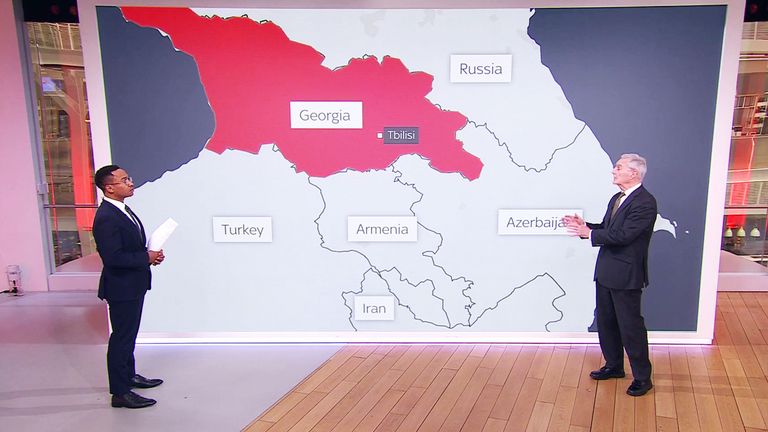
Why are there protests in Georgia?

Clashes erupt on UCLA campus

PMQs: Starmer welcomes defector MP

In full: Tuesday's UK Tonight

In full: Tuesday's The World

Why is South China sea so disputed?

In full: Tuesday's Politics Hub

Philippine ship surrounded by vessels
NHS vaccinations and when to have them
It's important that vaccines are given on time for the best protection, but if you or your child missed a vaccine, contact your GP to catch up.
NHS vaccination schedule
Extra vaccines for at-risk people.
Some vaccines are only available on the NHS for groups of people who need extra protection.
If you're starting college or university, you should make sure you've already had:
- the MenACWY vaccine – which protects against serious infections like meningitis. You can still ask your GP for this vaccine until your 25th birthday.
- 2 doses of the MMR vaccine – as there are outbreaks of mumps and measles at universities. If you have not previously had 2 doses of MMR, you can still ask your GP for the vaccine.
- the HPV vaccine – which helps protect against genital warts and cancers caused by the human papilloma virus (HPV), such as cervical cancer.
Non-urgent advice: Speak to your GP surgery if:
- you think you or your child have missed any vaccinations
- you or your child have a vaccination appointment – but you've missed it or cannot attend
Your GP surgery can book or rearrange an appointment.
It's best to have vaccines on time, but you can still catch up on most vaccines if you miss them.
Page last reviewed: 9 August 2023 Next review due: 9 August 2026

MMR jab uptake among young people in England up by 23% since 2023, says NHS
Exclusive: Vaccinations rise amid national campaign, but reported measles cases have increased by 40% since March
The number of young people receiving their MMR jab is up nearly a quarter from last year, official figures show.
A national campaign to boost uptake was launched in January amid concern over measles rates in England, when the UK Health Security Agency (UKHSA) declared a national incident after a major outbreak in the West Midlands. The growth in infections shows no sign of abating, with a 40% increase in reported cases in England since March .
The latest NHS England data shows more than 360,000 MMR jabs were administered in the 12 weeks to 24 March 2024, a 23% rise.
The biggest increases in vaccination numbers were in the north-west, London and the West Midlands .
The first dose of the measles, mumps and rubella vaccine is typically given to one-year-olds, with the second coming between the ages of three and a half and five. Measles is highly infectious and can lead to serious illness, lifelong disability or even death. In pregnant women, it can cause stillbirth, miscarriage and low birth weight.
The new campaign encourages parents and carers of children aged from six to 11 to make an appointment with their child’s GP practice so they can receive missed MMR vaccinations, and just over a million people aged 11 to 25 in London and the West Midlands have also been encouraged to catch up on missed jabs.
In order to keep measles at bay, more than 95% of children should be vaccinated , but NHS figures from December suggest England is only at about 85%.
With an estimated 3.4 million under-16s at risk of getting the virus, the campaign sent more than a million parents letters and emails inviting them to get their child vaccinated. Pop-up MMR clinics have been held in wellbeing buses, libraries and schools, pharmacies and outside supermarkets.
But measles cases continue to rise. According to UKHSA figures released last week, there were 103 new cases in the past week. The number of laboratory confirmed cases since 1 October 2023 rose to 1,212 , an increase of 40% on March’s figures . In October 2023, there were just 17.
Nearly two-thirds (64%) of the cases were in children under 10. Although UKHSA said measles was present in all regions, 46% of cases were in the West Midlands and 26% in London .
Steve Russell, the NHS national director for vaccinations and screening, welcomed the encouraging vaccination figures, but urged those yet to have their MMR jab to come forward.
He said: “Measles is a very serious illness and, with data showing cases are still being reported around the country, it is vital that everyone who is still unprotected comes forward to get their two doses as soon as possible, by contacting their GP surgery or visiting one of the pop-up vaccination clinics running in some of the most at-risk areas.”
after newsletter promotion
The health minister Maria Caulfield said: “The MMR catch-up programme is making strong progress thanks to the tireless work of NHS staff, and I thank every parent or carer who has come forward to protect their children from these diseases.
“It is absolutely crucial every parent checks the vaccination status of their children and takes up the offer of a jab as soon as they can.”
Responding to the findings, Prof Helen Bedford, an immunisation expert at the Royal College of Paediatrics and Child Health , said it was good news to see so many people vaccinated in such a short space of time – and that pop-up clinics and other initiatives had removed some of the practical barriers to accessing vaccines and providing flexible clinics appointments and information.
She said: “Although vaccine hesitancy is also a factor for some, there are real problems with accessibility across the UK. Measures to help families access appointments and vaccinations are essential.
“However, we are still a way off the 95% uptake target set by the World Health Organization. More work is needed to prevent further measles outbreaks.”
- Vaccines and immunisation
- Infectious diseases
- Children's health
- Young people

Measles in all English regions, says UKHSA, as it urges parents to get children jabbed

Today in Focus Why the UK needs to eliminate measles … again

‘This is urgent’: the UK is scrambling to stem an alarming tide of measles

WHO issues measles warning as yearly cases in Europe rise more than 30-fold
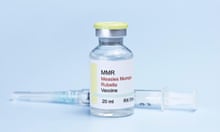
Rise in measles cases prompts vaccination campaign in England

UK measles outbreaks: why are cases rising and vaccination rates falling?

Surge in measles cases prompts UK to declare national health incident
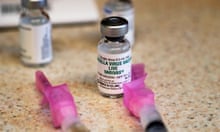
Why is the UK proposing chickenpox vaccines and do we really need them?
Most viewed.
Claudia Looi
Touring the Top 10 Moscow Metro Stations
By Claudia Looi 2 Comments

Komsomolskaya metro station looks like a museum. It has vaulted ceilings and baroque decor.
Hidden underground, in the heart of Moscow, are historical and architectural treasures of Russia. These are Soviet-era creations – the metro stations of Moscow.
Our guide Maria introduced these elaborate metro stations as “the palaces for the people.” Built between 1937 and 1955, each station holds its own history and stories. Stalin had the idea of building beautiful underground spaces that the masses could enjoy. They would look like museums, art centers, concert halls, palaces and churches. Each would have a different theme. None would be alike.
The two-hour private tour was with a former Intourist tour guide named Maria. Maria lived in Moscow all her life and through the communist era of 60s to 90s. She has been a tour guide for more than 30 years. Being in her 60s, she moved rather quickly for her age. We traveled and crammed with Maria and other Muscovites on the metro to visit 10 different metro stations.

Arrow showing the direction of metro line 1 and 2

Moscow subways are very clean
To Maria, every street, metro and building told a story. I couldn’t keep up with her stories. I don’t remember most of what she said because I was just thrilled being in Moscow. Added to that, she spilled out so many Russian words and names, which to one who can’t read Cyrillic, sounded so foreign and could be easily forgotten.
The metro tour was the first part of our all day tour of Moscow with Maria. Here are the stations we visited:
1. Komsomolskaya Metro Station is the most beautiful of them all. Painted yellow and decorated with chandeliers, gold leaves and semi precious stones, the station looks like a stately museum. And possibly decorated like a palace. I saw Komsomolskaya first, before the rest of the stations upon arrival in Moscow by train from St. Petersburg.
2. Revolution Square Metro Station (Ploshchad Revolyutsii) has marble arches and 72 bronze sculptures designed by Alexey Dushkin. The marble arches are flanked by the bronze sculptures. If you look closely you will see passersby touching the bronze dog's nose. Legend has it that good luck comes to those who touch the dog's nose.

Touch the dog's nose for good luck. At the Revolution Square station

Revolution Square Metro Station
3. Arbatskaya Metro Station served as a shelter during the Soviet-era. It is one of the largest and the deepest metro stations in Moscow.

Arbatskaya Metro Station
4. Biblioteka Imeni Lenina Metro Station was built in 1935 and named after the Russian State Library. It is located near the library and has a big mosaic portrait of Lenin and yellow ceramic tiles on the track walls.

Lenin's portrait at the Biblioteka Imeni Lenina Metro Station

5. Kievskaya Metro Station was one of the first to be completed in Moscow. Named after the capital city of Ukraine by Kiev-born, Nikita Khruschev, Stalin's successor.

Kievskaya Metro Station
6. Novoslobodskaya Metro Station was built in 1952. It has 32 stained glass murals with brass borders.

Novoslobodskaya metro station
7. Kurskaya Metro Station was one of the first few to be built in Moscow in 1938. It has ceiling panels and artwork showing Soviet leadership, Soviet lifestyle and political power. It has a dome with patriotic slogans decorated with red stars representing the Soviet's World War II Hall of Fame. Kurskaya Metro Station is a must-visit station in Moscow.

Ceiling panel and artworks at Kurskaya Metro Station

8. Mayakovskaya Metro Station built in 1938. It was named after Russian poet Vladmir Mayakovsky. This is one of the most beautiful metro stations in the world with 34 mosaics painted by Alexander Deyneka.

Mayakovskaya station

One of the over 30 ceiling mosaics in Mayakovskaya metro station
9. Belorusskaya Metro Station is named after the people of Belarus. In the picture below, there are statues of 3 members of the Partisan Resistance in Belarus during World War II. The statues were sculpted by Sergei Orlov, S. Rabinovich and I. Slonim.

10. Teatralnaya Metro Station (Theatre Metro Station) is located near the Bolshoi Theatre.

Teatralnaya Metro Station decorated with porcelain figures .

Taking the metro's escalator at the end of the tour with Maria the tour guide.
Have you visited the Moscow Metro? Leave your comment below.
January 15, 2017 at 8:17 am
An excellent read! Thanks for much for sharing the Russian metro system with us. We're heading to Moscow in April and exploring the metro stations were on our list and after reading your post, I'm even more excited to go visit them. Thanks again 🙂
December 6, 2017 at 10:45 pm
Hi, do you remember which tour company you contacted for this tour?
Leave a Reply Cancel reply
You must be logged in to post a comment.
Please go to the Instagram Feed settings page to create a feed.
- Articles >
The Moscow Metro Museum of Art: 10 Must-See Stations
There are few times one can claim having been on the subway all afternoon and loving it, but the Moscow Metro provides just that opportunity. While many cities boast famous public transport systems—New York’s subway, London’s underground, San Salvador’s chicken buses—few warrant hours of exploration. Moscow is different: Take one ride on the Metro, and you’ll find out that this network of railways can be so much more than point A to B drudgery.
The Metro began operating in 1935 with just thirteen stations, covering less than seven miles, but it has since grown into the world’s third busiest transit system ( Tokyo is first ), spanning about 200 miles and offering over 180 stops along the way. The construction of the Metro began under Joseph Stalin’s command, and being one of the USSR’s most ambitious building projects, the iron-fisted leader instructed designers to create a place full of svet (radiance) and svetloe budushchee (a radiant future), a palace for the people and a tribute to the Mother nation.
Consequently, the Metro is among the most memorable attractions in Moscow. The stations provide a unique collection of public art, comparable to anything the city’s galleries have to offer and providing a sense of the Soviet era, which is absent from the State National History Museum. Even better, touring the Metro delivers palpable, experiential moments, which many of us don’t get standing in front of painting or a case of coins.
Though tours are available , discovering the Moscow Metro on your own provides a much more comprehensive, truer experience, something much less sterile than following a guide. What better place is there to see the “real” Moscow than on mass transit: A few hours will expose you to characters and caricatures you’ll be hard-pressed to find dining near the Bolshoi Theater. You become part of the attraction, hear it in the screech of the train, feel it as hurried commuters brush by: The Metro sucks you beneath the city and churns you into the mix.
With the recommendations of our born-and-bred Muscovite students, my wife Emma and I have just taken a self-guided tour of what some locals consider the top ten stations of the Moscow Metro. What most satisfied me about our Metro tour was the sense of adventure . I loved following our route on the maps of the wagon walls as we circled the city, plotting out the course to the subsequent stops; having the weird sensation of being underground for nearly four hours; and discovering the next cavern of treasures, playing Indiana Jones for the afternoon, piecing together fragments of Russia’s mysterious history. It’s the ultimate interactive museum.
Top Ten Stations (In order of appearance)
Kievskaya station.

Kievskaya Station went public in March of 1937, the rails between it and Park Kultury Station being the first to cross the Moscow River. Kievskaya is full of mosaics depicting aristocratic scenes of Russian life, with great cameo appearances by Lenin, Trotsky, and Stalin. Each work has a Cyrillic title/explanation etched in the marble beneath it; however, if your Russian is rusty, you can just appreciate seeing familiar revolutionary dates like 1905 ( the Russian Revolution ) and 1917 ( the October Revolution ).
Mayakovskaya Station
Mayakovskaya Station ranks in my top three most notable Metro stations. Mayakovskaya just feels right, done Art Deco but no sense of gaudiness or pretention. The arches are adorned with rounded chrome piping and create feeling of being in a jukebox, but the roof’s expansive mosaics of the sky are the real showstopper. Subjects cleverly range from looking up at a high jumper, workers atop a building, spires of Orthodox cathedrals, to nimble aircraft humming by, a fleet of prop planes spelling out CCCP in the bluest of skies.
Novoslobodskaya Station

Novoslobodskaya is the Metro’s unique stained glass station. Each column has its own distinctive panels of colorful glass, most of them with a floral theme, some of them capturing the odd sailor, musician, artist, gardener, or stenographer in action. The glass is framed in Art Deco metalwork, and there is the lovely aspect of discovering panels in the less frequented haunches of the hall (on the trackside, between the incoming staircases). Novosblod is, I’ve been told, the favorite amongst out-of-town visitors.
Komsomolskaya Station
Komsomolskaya Station is one of palatial grandeur. It seems both magnificent and obligatory, like the presidential palace of a colonial city. The yellow ceiling has leafy, white concrete garland and a series of golden military mosaics accenting the tile mosaics of glorified Russian life. Switching lines here, the hallway has an Alice-in-Wonderland feel, impossibly long with decorative tile walls, culminating in a very old station left in a remarkable state of disrepair, offering a really tangible glimpse behind the palace walls.
Dostoevskaya Station

Dostoevskaya is a tribute to the late, great hero of Russian literature . The station at first glance seems bare and unimpressive, a stark marble platform without a whiff of reassembled chips of tile. However, two columns have eerie stone inlay collages of scenes from Dostoevsky’s work, including The Idiot , The Brothers Karamazov , and Crime and Punishment. Then, standing at the center of the platform, the marble creates a kaleidoscope of reflections. At the entrance, there is a large, inlay portrait of the author.
Chkalovskaya Station
Chkalovskaya does space Art Deco style (yet again). Chrome borders all. Passageways with curvy overhangs create the illusion of walking through the belly of a chic, new-age spacecraft. There are two (kos)mosaics, one at each end, with planetary subjects. Transferring here brings you above ground, where some rather elaborate metalwork is on display. By name similarity only, I’d expected Komsolskaya Station to deliver some kosmonaut décor; instead, it was Chkalovskaya that took us up to the space station.
Elektrozavodskaya Station

Elektrozavodskaya is full of marble reliefs of workers, men and women, laboring through the different stages of industry. The superhuman figures are round with muscles, Hollywood fit, and seemingly undeterred by each Herculean task they respectively perform. The station is chocked with brass, from hammer and sickle light fixtures to beautiful, angular framework up the innards of the columns. The station’s art pieces are less clever or extravagant than others, but identifying the different stages of industry is entertaining.
Baumanskaya Statio
Baumanskaya Station is the only stop that wasn’t suggested by the students. Pulling in, the network of statues was just too enticing: Out of half-circle depressions in the platform’s columns, the USSR’s proud and powerful labor force again flaunts its success. Pilots, blacksmiths, politicians, and artists have all congregated, posing amongst more Art Deco framing. At the far end, a massive Soviet flag dons the face of Lenin and banners for ’05, ’17, and ‘45. Standing in front of the flag, you can play with the echoing roof.
Ploshchad Revolutsii Station

Novokuznetskaya Station
Novokuznetskaya Station finishes off this tour, more or less, where it started: beautiful mosaics. This station recalls the skyward-facing pieces from Mayakovskaya (Station #2), only with a little larger pictures in a more cramped, very trafficked area. Due to a line of street lamps in the center of the platform, it has the atmosphere of a bustling market. The more inventive sky scenes include a man on a ladder, women picking fruit, and a tank-dozer being craned in. The station’s also has a handsome black-and-white stone mural.
Here is a map and a brief description of our route:
Start at (1)Kievskaya on the “ring line” (look for the squares at the bottom of the platform signs to help you navigate—the ring line is #5, brown line) and go north to Belorusskaya, make a quick switch to the Dark Green/#2 line, and go south one stop to (2)Mayakovskaya. Backtrack to the ring line—Brown/#5—and continue north, getting off at (3)Novosblodskaya and (4)Komsolskaya. At Komsolskaya Station, transfer to the Red/#1 line, go south for two stops to Chistye Prudy, and get on the Light Green/#10 line going north. Take a look at (5)Dostoevskaya Station on the northern segment of Light Green/#10 line then change directions and head south to (6)Chkalovskaya, which offers a transfer to the Dark Blue/#3 line, going west, away from the city center. Have a look (7)Elektroskaya Station before backtracking into the center of Moscow, stopping off at (8)Baumskaya, getting off the Dark Blue/#3 line at (9)Ploschad Revolyutsii. Change to the Dark Green/#2 line and go south one stop to see (10)Novokuznetskaya Station.
Check out our new Moscow Indie Travel Guide , book a flight to Moscow and read 10 Bars with Views Worth Blowing the Budget For
Jonathon Engels, formerly a patron saint of misadventure, has been stumbling his way across cultural borders since 2005 and is currently volunteering in the mountains outside of Antigua, Guatemala. For more of his work, visit his website and blog .

Photo credits: SergeyRod , all others courtesy of the author and may not be used without permission

IMAGES
COMMENTS
The GP or practice nurse may be able to give you general advice about travel vaccinations and travel health, such as protecting yourself from malaria. They can give you any missing doses of your UK vaccines if you need them. Not all travel vaccinations are available free on the NHS, even if they're recommended for travel to a certain area.
Country-by-country advice. Get advice about getting vaccinated before travelling abroad and information about common travel vaccines.
Ask your GP, pharmacy or travel clinic if you should have the hepatitis A vaccine if you're travelling to: Sub-Saharan and North Africa; Asia; the Middle East; South and Central America; Eastern Europe; The vaccination against hepatitis A is usually given as a single initial injection, with a second dose 6 to 12 months later.
NHS GP practices are required to offer certain vaccinations for the purposes of travel, free of charge. The travel vaccines available on the NHS are provided because they protect against the diseases thought to be the greatest risk to public health, if brought into this country. These are: polio (given as a combined diphtheria/tetanus/polio jab).
You can do this by making a travel planning appointment at your GP surgery. During your consultation a specialist travel nurse will complete a risk assessment to determine which vaccines are right for you. ... Free travel vaccinations. The NHS does not usually cover travellers for vaccinations relating to exotic travel, although some ...
Travel medication and vaccinations. Advice for GPs and LMCs on the regulations for travel immunisations and medications - some must always be given with no fee, some cannot, and some can be given as either an NHS or private service. This guidance is to help GPs and LMCs (local medical committees) understand the regulations on travel ...
Travel health advice and travel vaccinations. You should make an appointment for a travel health risk assessment if you're travelling abroad and think you need: vaccines. a malaria risk assessment. further advice. A travel health professional will take you through your travel health risk assessment. Your GP is no longer your point of contact ...
If the GP practice does not provide NHS vaccinations for travel, you can try a: private travel vaccination clinic; pharmacy offering travel healthcare services; The GP or practice nurse may be able to give you general advice about travel vaccinations and travel health, such as protecting yourself from malaria.
Ideally travellers should consult their GP, practice nurse, pharmacist, or travel clinic 4 to 6 weeks before their trip for individual advice, travel vaccines and malaria prevention tablets, if ...
Free travel vaccinations (available at the GP surgery) The following travel vaccinations are available free on the NHS: Diphtheria, polio and tetanus (combined booster) Typhoid. H epatitis A (including when combined with typhoid or hepatitis B) Cholera. These vaccines are free because they protect against diseases thought to represent the ...
NHS programme. Our practice is able to offer free travel vaccinations under the NHS programme. Details of which vaccines are offered free by the NHS are on the NHS online guide. Depending on where you are travelling to, you might need some travel vaccines that are not included in the NHS programme. You will need to contact a private travel ...
We offer travel advice and the necessary injections in our travel clinics run by our practice nurse. We offer ONLY the free NHS vaccines. Some additional vaccines you may have to attend a local travel centre and will need to pay for these. Initially you will need to carry out a risk assessment on your travel plans, proposed itinerary and review ...
Book travel vaccinations. If you're planning to travel outside the UK, the surgery can help with travel advice and information about vaccines for travel. You must request travel advice at least 8 weeks before your departure date. This is because some vaccines: The NHS is only able to provide specific vaccinations to its NHS patients for travel.
The following travel vaccines continue to be available free on the NHS to citizens living in Scotland for the purpose of travel: cholera. hepatitis A. diptheria, polio, tetanus (administered as a combined vaccine) typhoid. The above vaccines are free as they protect against diseases that are considered to present the greatest risk to public ...
The Vaccinations National Booking Service is made up of: NHS App users can also book or manage a coronavirus (COVID-19) vaccination appointment. There is also a telephone service, 119, for people who cannot or do not want to use the online booking service. NHS England runs this. The phoneline operators use the Book a coronavirus vaccination ...
NHS Fit for Travel. From the 1 st October 2023, you can get the following travel vaccinations for free with the NHS. Ask your GP practice for details: polio. typhoid. hepatitis A. cholera. Some travel vaccinations are only available privately. Your healthcare professional will be able to advise you on the cost for these.
NONE. Hepatitis B. Hepatitis B vaccine alone is not remunerated by the NHS for the purposes of travel. Supplies may be limited due to shortages.2. Engerix B® 20mcg/ml prefilled syringe £12.99. Engerix B 10mcg/0.5ml prefilled syringe (15 years and under only) £9.67. Engerix B® 20mcg/ml vial £12.34.
Not all travel vaccinations are available free on the NHS, even if they're recommended for travel to a certain area. If the GP practice is signed up to provide NHS travel vaccines, these can be provided to you free of charge. Other non-NHS travel vaccines may be charged for by the GP. If the GP practice can give you the travel vaccines you ...
NHS Dorset said more than 300,000 appointments were available until the end of June ... Covid clinics offering top-up vaccinations have opened across Dorset. ... community hospitals and GP ...
Vaccine claim: 'We need to learn from these incidents' says former NHS leader . Dr Kanani says the vaccine 'offered us hope' but equally 'learning from vaccinations is critically important'.
Get directions to Yuzhny prospekt, 6к1 and view details like the building's postal code, description, photos, and reviews on each business in the building
Children's flu vaccine (every year until children finish Year 11 of secondary school) 3 years and 4 months. MMR vaccine (2nd dose) 4-in-1 pre-school booster vaccine. 12 to 13 years. HPV vaccine. 14 years. Td/IPV vaccine (3-in-1 teenage booster) MenACWY vaccine.
Elektrostal , lit: Electric and Сталь , lit: Steel) is a city in Moscow Oblast, Russia, located 58 kilometers east of Moscow. Population: 155,196 ; 146,294 ...
The NHS is set to offer a Spring COVID jab to those most at risk of severe illness from the virus. This move aims to provide protection if COVID-19 rates spike over the summer months, and reduce the likelihood of hospital treatment for those who contract the virus.. Those eligible for the spring vaccination include individuals aged 75 and over (by June 30 2024), people with compromised immune ...
The latest NHS England data shows more than 360,000 MMR jabs were administered in the 12 weeks to 24 March 2024, a 23% rise. The biggest increases in vaccination numbers were in the north-west ...
Coroner issues warning after man, 28, given fatal Covid jab because of GP data blunder Alex Reid given Oxford-Astra Zeneca vaccine despite danger to under-30s as NHS thought he was morbidly obese
6. Novoslobodskaya Metro Station was built in 1952. It has 32 stained glass murals with brass borders. Novoslobodskaya metro station. 7. Kurskaya Metro Station was one of the first few to be built in Moscow in 1938. It has ceiling panels and artwork showing Soviet leadership, Soviet lifestyle and political power.
Have a look (7)Elektroskaya Station before backtracking into the center of Moscow, stopping off at (8)Baumskaya, getting off the Dark Blue/#3 line at (9)Ploschad Revolyutsii. Change to the Dark Green/#2 line and go south one stop to see (10)Novokuznetskaya Station. Check out our new Moscow Indie Travel Guide, book a flight to Moscow and read 10 ...